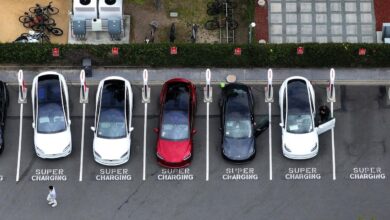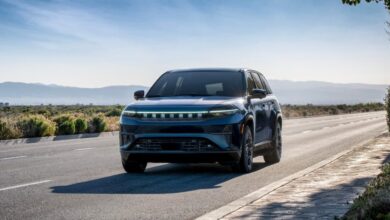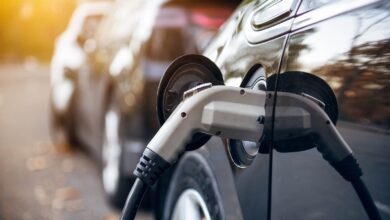Volkswagen electric car sales plunge: Why are Europeans returning to petrol?

Sales of Volkswagen electric vehicles in Europe fell by almost a quarter in the first three months of the year as consumers returned to petrol.
The company said in its latest financial update on 10 April that sales of all-electric vehicles declined by 24% in Europe, while sales grew by 91% in China, year-over-year.
However, overall, the company said it increased its vehicle deliveries by 3% to 2.10 million vehicles with the main drivers being China, South America and North America.
“Vehicles with combustion engines increased by 4% to 1.97 million units, overcompensating the slight decline of 3% to 136,400 all-electric vehicles (BEV). In this segment, strong growth in China (+91%) did not fully offset the decline in Europe (-24%).
“However, incoming orders for BEVs in Western Europe developed positively from January to March. More than twice as many all-electric models were ordered as in the same period last year (+154%), so that the BEV order bank currently stands at around 160,000 vehicles,” a company statement said.
Volkswagen’s Hildegard Wortmann, a member of the group’s Extended Executive Committee for Sales, commented on the latest results.
“In a market environment that remains challenging, the Volkswagen Group achieved a solid delivery performance in the first quarter. Our diversified product portfolio gives us the necessary flexibility to compensate for fluctuations in demand in certain segments – as is currently the case with all-electric vehicles – in others.
“The higher order intake for our all-electric models in Europe makes us confident that we will grow in this segment both in our home region and worldwide over the year as a whole. More than 30 model launches across all drive types this year will give us tailwind in the coming months.”
Why are European turning back to petrol?
In February, the European Parliament voted to approve a new law banning the sale of petrol and diesel cars from 2035.
The new rule – part of a larger effort to combat climate change in the EU – will speed up the bloc’s transition to electric vehicles.
Despite this, electric vehicle sales declined in Europe in the first quarter of 2024 as the sector still has challenges, such as the high cost and lack of charging infrastructure, as also highlighted by the World Economic Forum in a recent report.
“A recent report from Ernst & Young points to the positive effects that regulation, subsidies and incentives have had in terms of driving uptake….but even with subsidies, cost is still one of the biggest barriers to mass market adoption. On average, EVs cost over a quarter more than internal combustion engines (also known as ICE) models. However, over time, their cost of ownership is lower – something car buyers are not widely aware of, EY point out,” the World Economic Forum report said.
The World Economic Forum also noted how the lag in building out charging infrastructure continues to affect the market.
“Ernst & Young predicts that adoption will stall without substantial public networks of fast chargers catering for those who can’t charge at home or need top-ups on longer journeys. This will require the removal of red tape, faster approvals from local authorities and available grid connections from utility networks, EY say,” the report also said.



